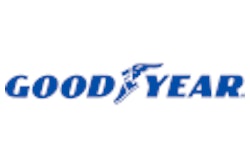DOT bans handheld cell use while driving
By Jill Dunn
U.S. Transportation Secretary Ray LaHood has released a final rule that will allow commercial drivers to continue hands-free cell phone use, but will bar operating handheld cell phones while driving.
The new rule still will permit truck and bus drivers to use handheld cells after they have moved their vehicles to the side of or off a highway or have stopped where the vehicle can safely remain stationary.
Violators will face a maximum civil penalty of $2,750 for each offense. CDL holders will be disqualified from operating a commercial motor vehicle for multiple offenses and states will suspend CDLs after two or more serious traffic violations.
Truck and bus companies that allow drivers to use handheld cell phones while driving will face a maximum penalty of $11,000.
FMCSA research shows using a handheld cell phone while driving requires “several risky steps” beyond what is required for a hands-free mobile phone. Dialing a handheld cell phone increases the crash-risk for commercial drivers six-fold, it stated.
Last year, the agency issued a final rule banning commercial drivers from text messaging while operating trucks or buses. Earlier this year, the PHMSA published a companion final rule barring texting by intrastate hazardous materials drivers.
Hours rule delayed again
By Max Heine
At press time, the White House Office of Management and Budget was still reviewing the final rule for truck drivers’ hours of service after receiving the rule from the U.S. Department of Transportation on Nov. 1. The Federal Motor Carrier Safety Administration on Oct. 28 announced that it would not be able to publish the rule by that day’s court-imposed extended deadline and that the petitioners had agreed to extend the deadline for publication.
The parties to the settlement agreed to file their next status report with the court on Monday, Nov. 28. They requested another extension and to file their next status report in 45 days pending the issuing of a final rule. FMCSA said in a Nov. 28 filing that it expects to issue the final rule within the next 30 days.
Under the current proposal, FMCSA is, among other changes, considering whether to reduce the daily driving limit from 11 hours to 10 hours and has proposed to limit the 34-hour restart provision by requiring that it include two periods from midnight to 6 a.m. and limiting its use to once per week. ATA and the Owner-Operator Independent Drivers Association have said the proposal is costly and unnecessary since studies indicate safety improvements under the 2008 rule.
Trucking safety record improves
From Staff Reports
American Trucking Associations President and CEO Bill Graves recognized the continued progress in the trucking industry’s safety record.
“Based on the latest report from the Federal Motor Carrier Safety Administration, fatal crashes involving a large truck have fallen 31 percent from 2007 to 2009, and crashes resulting in injury have fallen 30 percent,” Graves said following a review of FMCSA’s 2009 Large Truck and Bus Crash Facts.
The fatal crash rate has fallen each year since 2005, according to the FMCSA statistics.
In addition, the large truck fatal crash rate fell to 1 crash per 100 million miles in 2009 from 1.1 crashes per 100 million miles in 2008, according to the report. Since 2000, the fatal crash rate for large trucks has fallen 54.5 percent compared with the passenger vehicle fatal crash rate decline of 25 percent.
Graves also complained FMCSA hasn’t done more to announce the report.
“By not celebrating this success, the agency is doing itself a disservice,” Graves said. “These results are as much an achievement for FMCSA as they are for the nation’s trucking industry. We are at a loss on why FMCSA chose not to communicate this final data indicating great safety progress.”
FYI NEWS BRIEFS
Teamsters re-elect Hoffa
The Teamsters union has re-elected General President Jim Hoffa against two challengers by a 60 percent margin. Hoffa received 137,172 votes, which was 83,024 more votes than contender Fred Gegare, a Teamsters vice president. Hoffa has been president for nearly 13 years and will begin his next five-year term in March.
McCrimmon wins Freightliner challenge
Tom “Thumper” McCrimmon, driver of the No. 20 hauler for Joe Gibbs Racing, won the Freightliner Trucks Run Smart Hauler Challenge and received the $30,000 grand prize. Freightliner Trucks, the official hauler of NASCAR, holds the competition every year to test driving abilities of NASCAR team hauler drivers. McCrimmon, who drives a Freightliner Coronado equipped with a Detroit Diesel DD16 engine, has participated in the challenge for five years.
Goodyear opens Wingfoot locations
Wingfoot Commercial Tire Systems has opened Wingfoot Truck Care Center locations in Joplin, Mo., and Greenwood, La. The Joplin Wingfoot Truck Care Center is located on Interstate 44 at exit 11A, while the Greenwood Wingfoot Truck Care Center is located on Interstate 20 at exit 3. Both outlets are located on Pilot Flying J properties.
Tonnage index rises in October
The American Trucking Associations Nov. 22 announced its advance seasonally adjusted For-Hire Truck Tonnage Index increased 0.5 percent in October after a 1.5 percent increase in September. The nonseasonally adjusted index, which represents the change in tonnage actually hauled by the fleets before any seasonal adjustment, in October was 0.8 percent below the previous month.
Love’s ranks 7th on Forbes list
Forbes ranked Love’s Travel Stops in seventh place on its list of America’s largest private companies. The Oklahoma City, Okla.-based travel center chain rose 11 places from last year’s ranking, the largest jump on the list of 212 companies. Companies on the Forbes list must make at least $2 billion in revenues, have more than 100 employees and may not be more than 50 percent owned by another public, private or foreign company.
Freightliner kicks off truck design contest
University students are eligible to enter truck designs suitable for owner-operators for the annual contest Design the Future of Pride & Profit, Portland, Ore.-based Freightliner Trucks announced. The winner will receive a $20,000 scholarship and the option for a paid internship at the truck maker. The competition will run through February. For a list of rules and entry details, visit https://www.facebook.com/freightliner.
Drivers eligible for sweepstakes prizes
Starting this month, drivers of Class 8 trucks may enter the Weigh to Win sweepstakes through June 1 to vie for a Ford F-250 grand prize, Walcott, Iowa-based CAT Scale announced in honor of its 35th anniversary. Drivers can enter the contest every time they weigh their trucks on the scales. In addition to the grand prize, other awards include CAT Scale jackets and hats, collector card sets, duffel bags, die-cast model trucks, mugs and lunch coolers.
IdleAir opens two new locations
Electric shore power provided by IdleAir is newly available at travel centers in Dalton, Ga., off Interstate 75 at exit 326, and in White Pine, Tenn., off Interstate 81 at exit 4, Pilot Flying J travel centers announced. The White Pine site features a solar panel array that generates 50 percent of that IdleAir location’s daytime electricity needs. The shore power provider operates 23 sites in nine states and is planning to open more later this year.
Pilot rebrands Grand Forks stop
The recently purchased truck stop at 4401 S. 32nd Ave., in Grand Forks., N.D., will be remodeled by mid-month, Pilot Flying J says of its acquisition. The travel center will feature four fuel islands and eight diesel islands. Drivers also will have access to diesel exhaust fluid and biodiesel at the pump, a CAT Scale, laundry services, 10 automated showers and 141 parking spaces for trucks.
Groups file lawsuit to block cross-border program
By Max Heine
A lawsuit filed Nov. 23 seeks to block the U.S. Department of Transportation from opening the U.S. border to Mexican trucks through its cross-border pilot program. The International Brotherhood of Teamsters, Public Citizen and the Sierra Club challenged the program in the U.S. Court of Appeals for the D.C. Circuit.
The suit claims the Federal Motor Carrier Safety Administration’s pilot program:
• Waives a law that trucks must display certain proof that they meet federal safety standards.
• Breaks the law requiring the pilot program to achieve an equivalent level of safety because Mexican drivers don’t have to meet the same physical requirements as U.S. drivers.
• Breaks the law that Mexico must provide simultaneous and comparable access to U.S. trucks. Mexico cannot do so because of the limited availability of ultra-low-sulfur diesel fuel in Mexico, the suit alleges.
• Breaks the law that the pilot program must include enough participants to be statistically valid. The suit argues that FMCSA’s proposal ensures that only the best Mexican trucks participate, which would allow it to justify letting any Mexican truck over the border in the future.
• Doesn’t comply with the environment requirement of the National Environmental Policy Act.
Three Mexican carriers have been approved for program participation, with the third, Moises Alvarez Perez, recently clearing its Pre-Authority Screening Audit, according to the Federal Register. The first Mexican carrier approved for program participation, Transportes Olympic, made its first delivery under the program Oct. 20.









